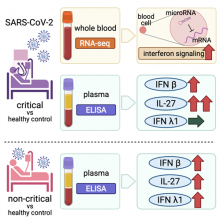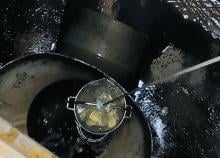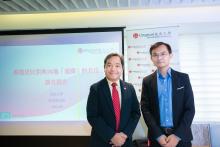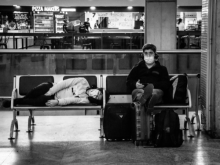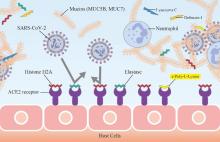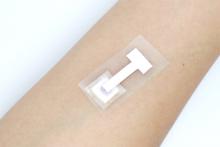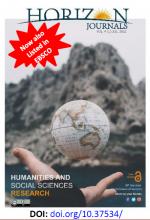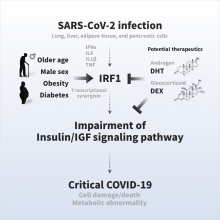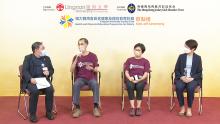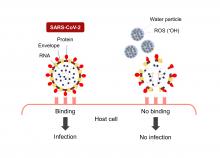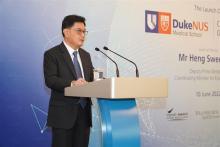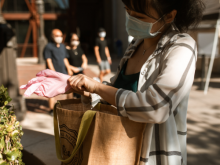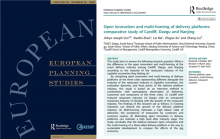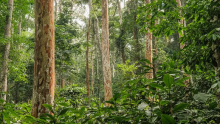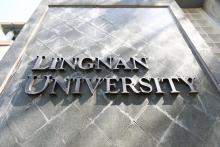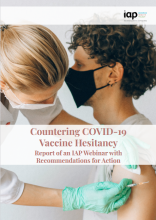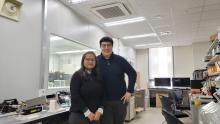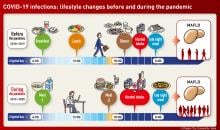Covid-19
News
26 Aug 2022
Researchers have made perovskite solar cells more efficient and stable, A new cause of Parkinson's related cell death, Hibernating superpower is in the blood, Common mechanism for cancer and atherosclerosis, COVID-19 antibody skin-based test. Read all in the August's Editor's Choice plus an Interview with Prof Sutee Yoksan on The story behind the new dengue vaccine & this month's Asia Research News 2022 magazine pick - The evolutionary history of puddle frogs.
24 Aug 2022
Researchers led by Osaka University performed RNA-sequencing analysis of whole blood samples from patients with severe COVID-19 and healthy controls to evaluate differences in messenger RNA and microRNA expression. The interferon signaling pathway was found to be activated in patients with severe COVID-19, and measurement of interferon proteins in the plasma revealed that interferon-β and interferon-λ1 play an important role in the severity of COVID-19.
22 Aug 2022
Scientists show that there is a close association between clinical cases of COVID-19 and viral loads in wastewater, with the viral loads picking up to two days before the cases were detected.
05 Aug 2022
A recent study “Hong Kong residents’ view on reopening land borders with Mainland” conducted by the Institute of Policy Studies (IPS) at Lingnan University (LU) shows that Hong Kong citizens are greatly affected by the current quarantine measures implemented by the Mainland government for inbound travellers. Nearly 65 per cent of respondents said their income has been reduced, 70 per cent found their jobs were affected, and 30 per cent have lost their jobs. 70 per cent of respondents hope that the government will provide medical subsidies and telemedicine services for citizens stranded on the Mainland, and 65 percent said they would be happier with the government if there were quarantine-free travel to the Mainland.
01 Aug 2022
Intergenerational support between aging parents and adult children is important for the well-being of both groups, especially during public health emergencies. However, few previous studies have examined the effects of daily support between parents and children on their well-being during public health emergencies. To bridge this gap, a study by Dr Jiang Da, Assistant Professor at the Department of Special Education and Counselling, The Education University of Hong Kong, examined the association between daily support and well-being in mothers and their adult children during the coronavirus disease 2019 pandemic.
22 Jul 2022
Asia Research News monitors the latest research news in Asia. Some highlights that caught our attention this week are 100-million-year old dino footprints found in China, horizontal gene transfer between insects, plants and microbes, and when penguins stopped flying.
20 Jul 2022
The quest for the ideal COVID-19 policies to contain outbreaks without border closures that harm the travel industry led researchers to one protocol.
19 Jul 2022
Saliva and oral cells are important routes for transmission and infection by the novel coronavirus COVID-19. A research group led by Associate Professor Misako Matsubara and Specially Appointed Professor Katsutoshi Yoshizato of Osaka Metropolitan University hypothesized that the body's innate immune system may protect against SARS-CoV-2 infection. The onset and severity of COVID-19 are age-dependent, as are parts of the innate immune system like saliva production and quality, which are significantly reduced in the elderly. They found that saliva from healthy individuals prevented the binding of the SARS-CoV-2 spike protein S1 on the viral envelope to the angiotensin-converting enzyme 2 (ACE2) receptor present on the plasma membrane of human cells in a concentration-dependent manner.
15 Jul 2022
Asia Research News monitors the latest research news in Asia. Some highlights that caught our attention this week are a robotic fish that can eat up microplastics, a bioinformatic platform that can test the efficacy of vaccines against COVID, and a new method of removing phosphorus from water using bacteria.
05 Jul 2022
23 Gold awarded at MTE 2022: COVID-19 International Innovation Awards and Advanced Healthcare & Life Sciences International Innovation Awards
01 Jul 2022
Researchers report a new, minimally invasive, antibody-based detection method for SARS-CoV-2 that could lead to the blood sample-free detection of many diseases
28 Jun 2022
I am pleased to announce that a Regular Issue, JUL 2022 of the Journal of Humanities & Social Sciences Research, Vol. 4 (1) Jul. 2022 has been published ahead of time on 15 Jun 2022 and is now live at the Journal’s webpage. Explore this Issue at https://www.horizon-jhssr.com/current-issue.php
27 Jun 2022
Researchers from Osaka University have found that infection with SARS-CoV-2 activates the expression of IRF1, a key regulator of insulin/IGF signaling in multiple tissues, leading to disruption of blood sugar metabolism and, in some cases, new onset of diabetes. Treating infected cells with hormonal factors that decreased IRF1 expression enhanced insulin/IGF signaling, suggesting that this approach could be used to mitigate some of the more severe side effects of COVID-19 in the future.
22 Jun 2022
Lingnan University (LU) in Hong Kong held a kick-off ceremony for its “LU Jockey Club Health and Financial Education Programme for Elderly” today (21 June), attracting more than 300 programme participants, representatives of partner institutions and friends of LU to join. Funded by The Hong Kong Jockey Club Charities Trust, the three-year programme aims to strengthen and promote older adults’ knowledge of consumer behaviour, financial management skills, and healthcare management by offering them a series of training and inter-generational communication activities.
17 Jun 2022
A research group led by Osaka Metropolitan University and Panasonic Corporation Living Appliances and Solutions Company discovered how nano-sized electrostatic atomized water particles disinfect SARS-CoV-2. The nano-sized electrostatic atomized water particles developed by Panasonic Corporation have an electron rich nano-sized water shell that contains reactive oxygen species. The researchers showed that the water particles damage the viral envelope, protein, and RNA. They also revealed that the damaged virus did not bind to host cells. These phenomena are considered the main inactivation mechanism of the nano-sized electrostatic atomized water particles on SARS-CoV-2.
11 Jun 2022
Duke-NUS is working with the Bill and Melinda Gates Foundation to develop the Asia Pathogen Genomics Initiative (APGI) to improve regional genomic surveillance and sequencing capacity. New Centre for Outbreak Preparedness will support APGI and work closely with national and global partners to enhance regional capacity to predict, prepare and respond to future health threats.
20 May 2022
Asia Research News monitors the latest research news in Asia. Some highlights that caught our attention this week are smart contact lenses, cat communication, elephant mourning, and a hitchhiking drone.
18 May 2022
A study by Japanese researchers showed that getting a mild case of COVID-19 doesn’t translate to lower chances of becoming a long-hauler. And that sex and the presence of long-term symptoms are risk factors for post-COVID psychological distress.
13 May 2022
Molecular robots work cooperatively in swarms, LED lights made from rice husk, Muonic x-rays safely see inside samples, Making a luminescent material shine brighter and How to counter vaccine hesitancy, Read all in the May Editor's Choice and this month's Asia Research News 2022 magazine pick - Absorbing impact: Inside the Head of a Woodpecker.
13 May 2022
Division of Electronics & Information System Principal Researcher (and guest professor at Seoul National University) Jinhyo Joseph Yun’s team at DGIST conducted joint research with the Nanjing University of Science and Technology’s Professor Lei Ma’s team and the UK Cardiff Metropolitan University’s Professor Zheng Liu’s team on the delivery platform industry, which is becoming a new issue for the 21st century market economy. The teams published an international joint research paper in the ‘European Planning Studies,’ which will be out in May of 2022 in the UK.
03 May 2022
Media Advisory: Experts from the Center for International Forestry Research and World Agroforestry weigh in on the “State of the World’s Forests 2022"
29 Apr 2022
As COVID-19 continues to spread across the world, there is mandatory 7 to 21-day quarantine for travellers who arrive in Hong Kong and Mainland China from overseas. Since self-isolation may affect people’s emotional health adversely, Lingnan University (LU)’s Wofoo Joseph Lee Consulting and Counselling Psychology Research Centre (WJLCCPRC) has designed a self-assessment questionnaire and intervention exercise to help people in quarantine cope better psychologically.
27 Apr 2022
A new report by the InterAcademy Partnership (IAP) highlights practical recommendations for improving the uptake of vaccines.
25 Apr 2022
Coconut husk (CH), a solid biowaste derived from coconut, is typically used in household items, such as doormats. Recent studies have shown that CH is rich in lignocellulose, which can make for energy-related applications of CH. To this end, a global team of researchers, in a new study, make use of CH to develop self-powered energy storage and harvesting devices, achieving high energy density and output performance, and opening doors to a circular economy.
01 Apr 2022
Asia Research News monitors the latest research news in Asia. Some highlights that caught our attention this week are a magnetic slime, training for robotic surgeries, and the furthest star from Earth.
25 Mar 2022
In a retrospective study drawing data from 973 participants between 2018 and 2020, researchers find that cases of metabolic dysfunction-associated fatty liver disease (MAFLD) increased from 22 pre-pandemic to 44 mid. Additionally, univariate and multivariate analysis of lifestyle habits reveal late-night meals pre-pandemic and increased alcohol intake mid-pandemic as independent lifestyle predictors of developing the disease.
Events
Sorry, no events coming up for this topic.
Researchers
Sorry, no researchers coming up for this topic.
Giants in history
Wu Lien-teh (10 March 1879 – 21 January 1960) was a Malaysian-born doctor who invented a mask that effectively suppressed disease transmission. Winning the prestigious Queen’s Scholarship enabled Wu to become the first Chinese student to study medicine at the University of Cambridge.



